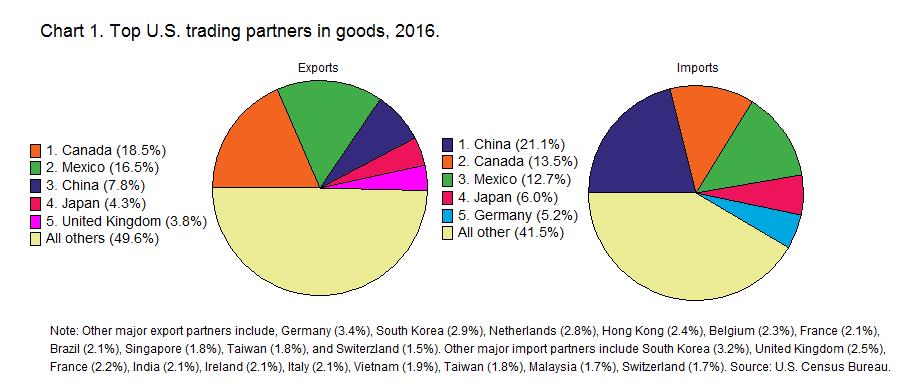President Trump Slaps a Tariff on Canada
“Canadian Bacon” is a mid-1990s satire of U.S. politics. In the film, the president tries to boost the economy by starting a war with Canada. The opening salvo involves Bud Boomer, a rural sheriff from upstate New York, sneaking into Toronto to throw garbage in a park. The fictitious war ends up hurting the economy. Similarly, President Trump’s escalation of trade disputes with Canada will only hurt the economy.
Earlier this week, President Trump slapped a 20 percent tariff on softwood lumber from Canada. Friction between the United States and Canada over the lumber trade is nothing new. U.S. lumber producers have complained for decades that the Canadian government unfairly subsidizes lumber production by allowing Canadian lumber companies to cull timber from public lands. U.S. lumber companies do not have the same unfettered access at home.
As AIER has argued time and time again, protectionist measures will harm the economy. In this case, the tariff raises the price of Canadian lumber relative to U.S. lumber. As a result, construction companies substitute away from the relatively expensive Canadian lumber toward domestically produced lumber. Construction companies will likely pass on higher lumber costs to consumers. The National Association of Home Builders forcefully responded to the tariff, saying the tariff will add close to $4,000 to the price of a new home.
Trade restrictions, like tariffs, benefit a few domestic producers at the expense of many consumers. Higher lumber prices will be positive for lumber companies but bad for the rest of the economy. Higher lumber prices will be an incentive for domestic lumber companies to produce more and hire more. On the other hand, higher lumber prices mean higher consumer prices. This will leave Americans with less money to purchase other goods and services. Less consumer spending will curb business activity outside of housing. In effect, the tariff subsidizes lumber companies at the expense of the rest of the economy.
President Trump stated the government is retaliating for Canadian tariffs on U.S. dairy products. Canadian tariffs on U.S. dairy products were grandfathered into NAFTA. Depending on the fat content, U.S. dairy products face a tariff as high as three times the value of the product. This means higher dairy prices for Canadian consumers.
The United States and Canada should both drop protectionist measures. The two countries cannot risk escalating tensions over trade. Canada is the United States’ largest export market. In 2016, 18.5 percent of U.S. exports went to Canada. Meanwhile, Canada is our second largest import provider. In 2016, Canada accounted for 13.5 percent of imports into the United States. A trade war must be avoided because it will only impoverish consumers on both sides of the northern border.










